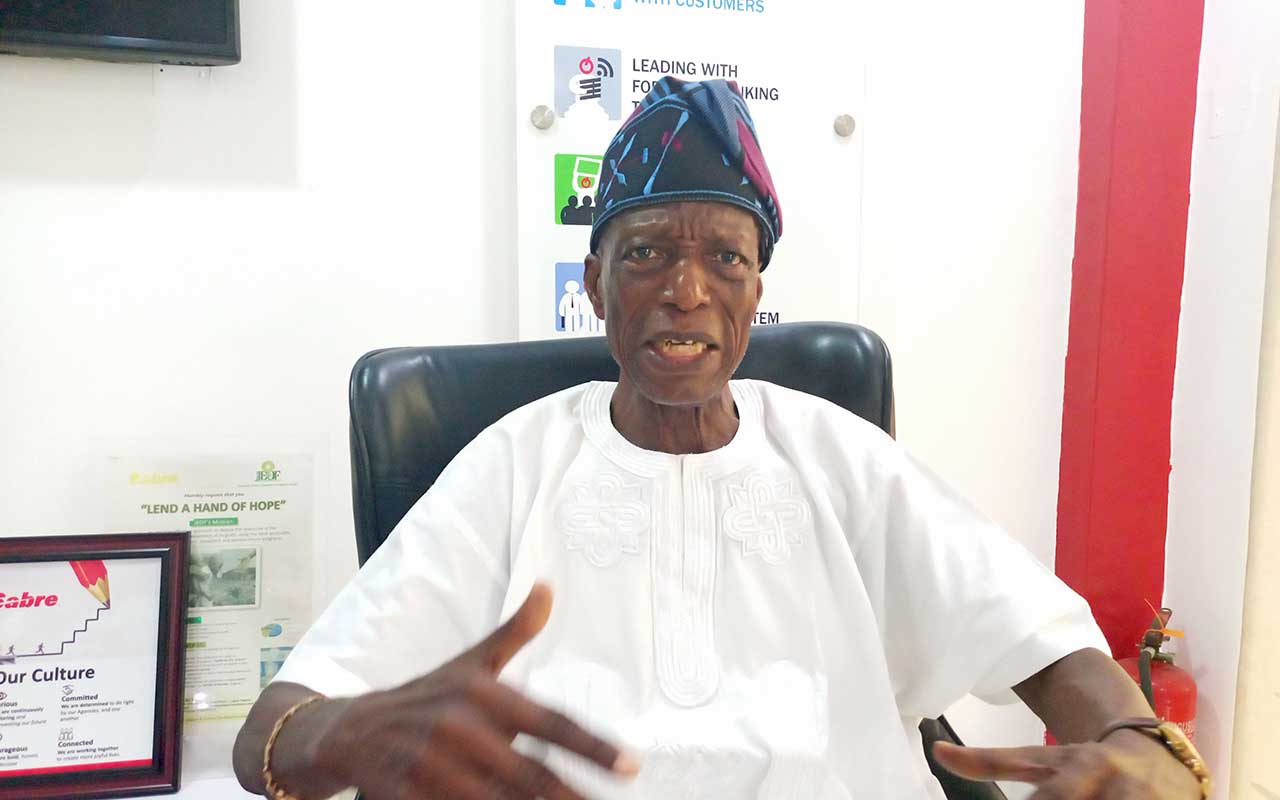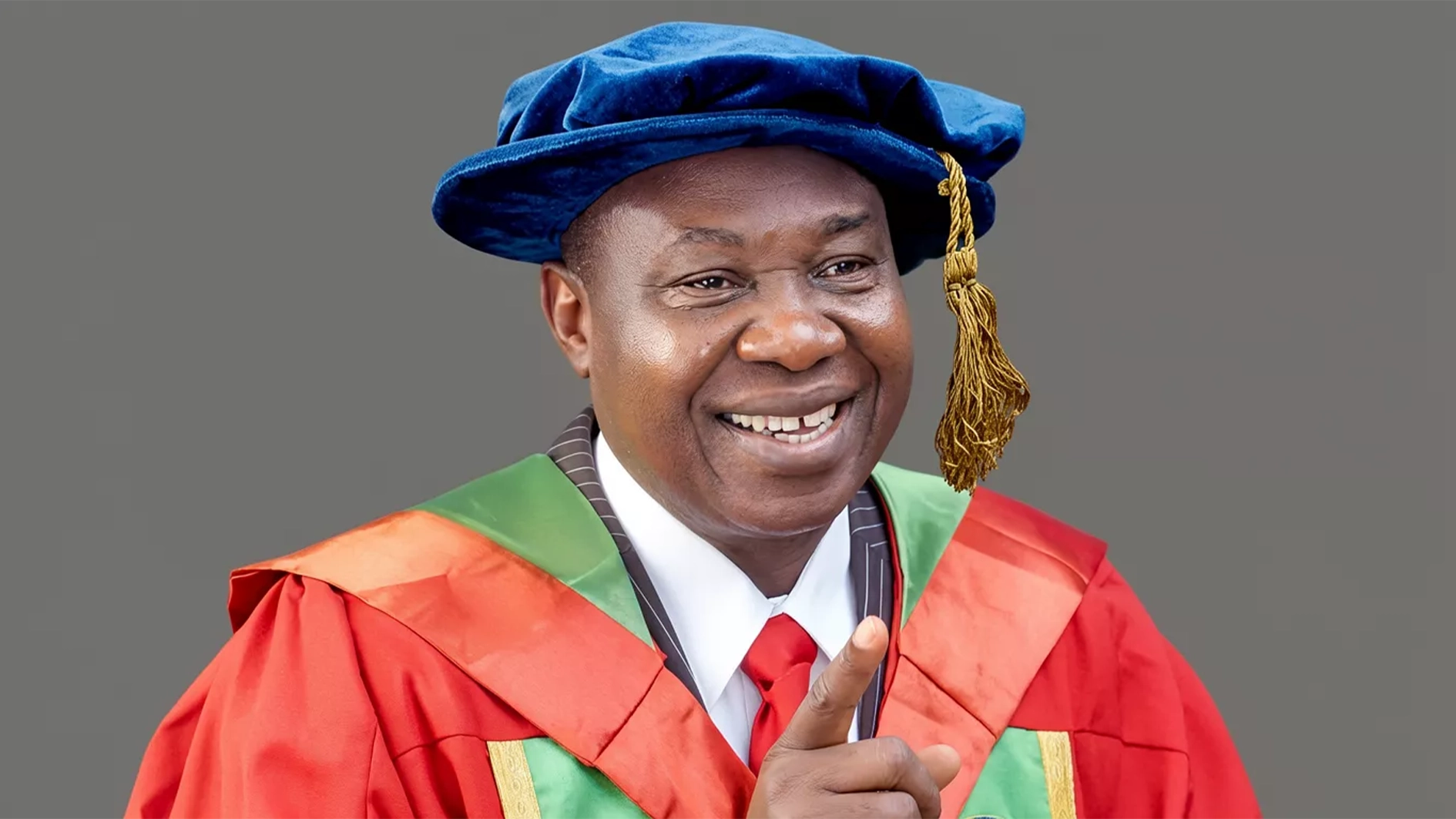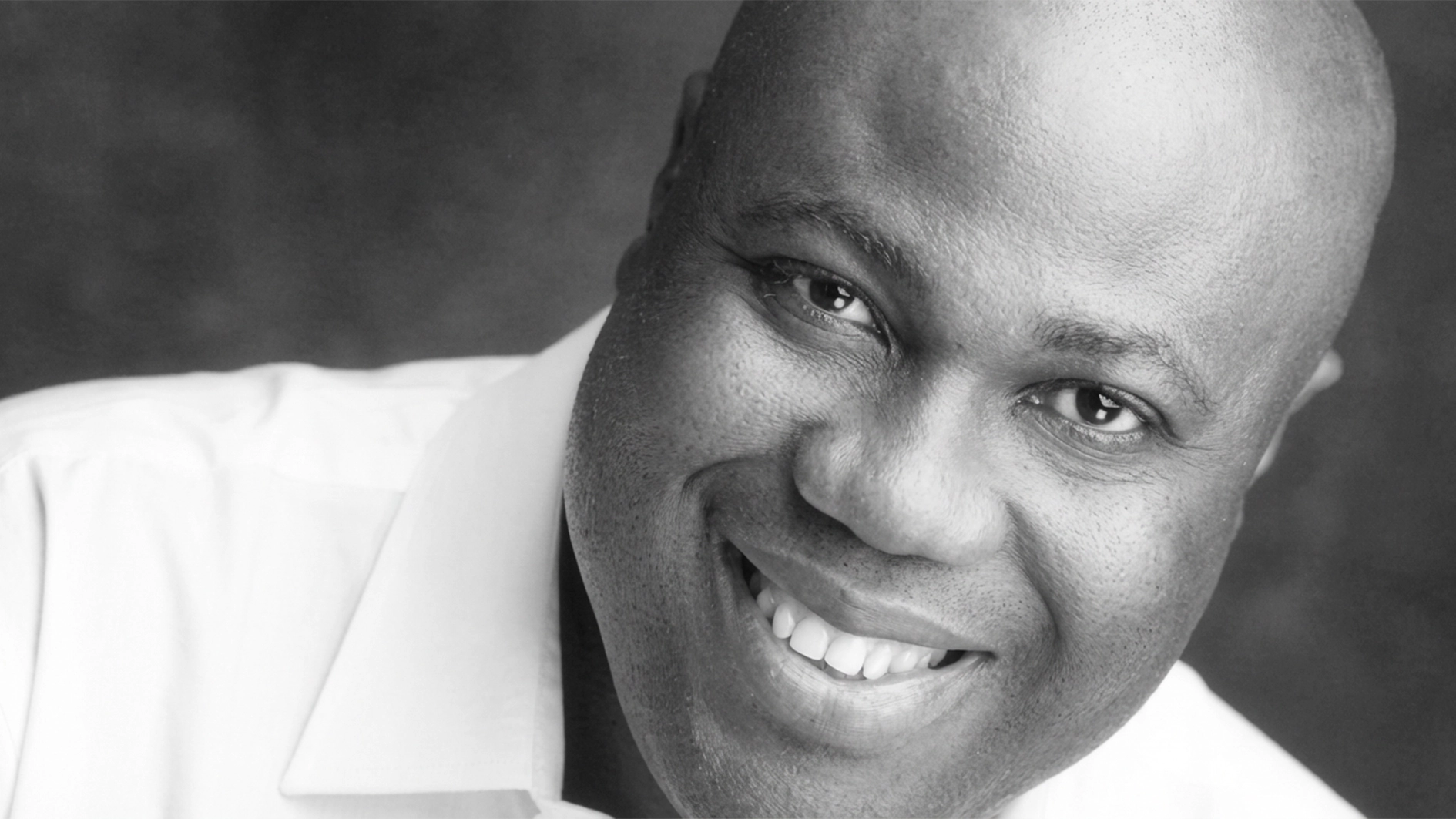Prof. Babatunde Wasiu Adeoye will on Wednesday, July 9, 2025, deliver the 17th Inaugural Lecture of the University of Lagos in the 2024/2025 academic session at the Tayo Aderinokun Hall. The Professor of Economics spoke with journalists ahead of the lecture, during which he pointed out the causes of the quagmire in the Nigerian economy and proffered solutions.
The topic of your forthcoming inaugural lecture, ‘Navigating the Miry Clay: Engaging a Three by Five Auxiliary Gear System’ sounds more engineering than economics. Can you shed light on it?
Thank you for this opportunity to express my view as far as this inaugural lecture is concerned. I believe this will give me even more opportunity to speak than when the lecture will be delivered next week because of time constraints.
Most of the people who saw the title of my lecture asked me: Am I in the Faculty of Engineering or in the Faculty of Social Sciences? Why the issue of a three by five auxiliary gear system?
One, the topic came as a result of my background. Number two, trying to look at it in line with what is happening within our economy, I just felt that there is a need for us to explore that; that we need something like that to move forward as a country. Apart from that, an inaugural lecture is meant to create a kind of curiosity. What is in the mind of this lecturer? What does he have to tell us? So, if you look at the title, you will want to know more.
Now, to go straight to your question, I was born in Gbongan, Osun State. I am from a very humble background. I left my parents at a tender age of 10. It’s not that they died, but I am from a polygamous family; so I was just left alone, wandering in the wilderness of life. But for God’s love, somebody searched and found me; and I found a ladder through which today, I am a professor. I thank God. I would have become a professional panel beater. So, the man picked me from the miry clay and set my feet on a solid rock. That is how that title came about.
As a corollary to that, if you look into the scripture, Psalm 40: 2 says, “You brought me up also out of an horrible pit, out of the miry clay and set me upon a rock and established my goings.” That scripture totally explains everything about me. I have enjoyed the grace of God throughout my life. And as I speak with you, in the whole clan of Adeoye in Gbongan, this is the first and only professor they have.
Having said that, if you look at where this scripture came from, it is trying to show the agony that our Lord Jesus Christ passed through when he was in the garden of Gethsemane. He was in a state of despair and desolation and that was how that scripture came about.
If you compare it with the Nigerian economy today, you will find out that our economy is in the miry clay and requires a kind of three by five auxiliary gear system to pull it out, in terms of appropriateness of policies, speed and timing.
What is the nature of the miry clay the Nigerian economy is navigating now?
When you look at that topic, it is made up of two concepts and those two concepts are used metaphorically. The first one is the concept of miry clay, while the second one is the concept of a three by five auxiliary gear system.
What do you mean by miry clay? A miry clay economy is an economy that is stagnant and faced with a lot of challenges – inefficiency, wastages and corruption. How can a developing economy like Nigeria borrow foreign policies? For instance, the bicameral legislature. Is it in line with our principles, culture and background? How do you explain a situation whereby subsidies are taken from what the poor can gain? How do you explain a situation whereby there is multiplicity of taxation? These are some of the issues that are embedded in the issue of a miry clay economy.
So, a miry clay economy is an economy that requires a definite action to pull it out of that particular situation. The Nigerian economy is in that state now.
So, three key things are required. One is appropriate policy, then the speed at which that policy will salvage that economy and the timing. All these are encapsulated in what I termed three by five auxiliary gear philosophy.
If you look at the second part, it is a gear box system made up of three on the input side and five on the output side. The whole essence is to pull out the truck that is heavy laden, that has already stuck in the miry clay. So, that is why I tried to put the two concepts together and see how I can tell the audience what I feel is needed now to salvage our economy.
The government has been defending the removal of petrol subsidies as one of its definite efforts to pull the economy out of the miry clay and make life better for the generality of Nigerians; but you say the policy is not beneficial to the poor. Why?
If the managers of our economy have that in mind and they are ready to do it, it is something that can pull out the economy from the miry clay. But let me say this: It is a two pronged policy. The essence of removing subsidy is to block rent seeking, because just very few people are benefitting from that subsidy. And that is why some people call it a scam. Truly, subsidy is a scam the way it is being done here.
But go to other parts of the world; they still subsidise some key areas that affect the common man. A good example is agriculture. Let me tell you; as of today, a bag of fertilizer is not less than N2,000.
A bag of fertilizer costs almost N40,000…
(Cuts in) Shouldn’t that be subsidised? How many farmers can afford that? Even if you can afford it, do you know the effect it will have on what we call farm gate price. Then, when those things are harvested from the farm, they won’t go to the market directly; we have middlemen who input their charges, which is part of multiplicity of taxes. Even before it gets to the final consumers, what is the state of our infrastructure?
You see, government is just looking on its side and that side is the only side that is beneficial to the government but not beneficial to the people – let us cut off rent seeking activities and have more money as a result of subsidy removal, of which they now have. Today, the state governors go home with more than three times what they were getting before subsidy removal. But have you seen any changes? Why can’t they subsidise fertilizer and even distribute it freely? Why can’t they distribute tractors and other things that will aid the production of food to farmers for free?
So, in my lecture, I tried to go against the neo-liberalists. The International Monetary (IMF) and World Bank will tell you to deal with your macro environment, monetary policy and fiscal policy but they will not work. Do you know why? Our economy is like someone that is suffering from tuberculosis and you are trying to diagnose and treat that person for malaria.
Inflation in Nigeria is structural in nature. What do I mean by that? It is not as a result of too much money chasing fewer goods. How many Nigerians have too much money? The economy is already tightened. But there are some structural factors that are missing in the economy, which is why we have inflation. So, there is no monetary policy that will be put in place by the Monetary Policy Committee (MPC) led by the Central Bank of Nigeria (CBN) that will have any positive effect. When you don’t provide security and farmers cannot go to their farms, when there is no kind of agricultural subsidy, when infrastructure is inadequate and dilapidated, tell me how there will be no inflation. So, it’s until we are able to think and look for homegrown policies that will drive our economy that we will get out of this miry clay.
How would you situate the floating of the naira by the current administration in its bid to pull the economy out of the miry clay?
Sincerely speaking, all those reforms are neo-liberal reforms. They are good. But there are some pre-conditions that must be met before those reforms can yield any positive result, which we have failed to put in place. You can float your naira, but when you float it, what are you producing? The essence of floating the naira is to make your goods competitive at the international market. But today, Nigeria still relies on its primary product, which is oil. Over 80 per cent of our revenue comes from oil. The managers of our economy for the past six decades failed to realise that all the money they have been realising from oil should be used to develop the real sector of the economy instead of wasting it.
The lecture tries to compare Nigeria with other countries, especially those countries that started together with it in the 60s like Malaysia, Indonesia and so on. What did they do? They started with primary production; but they used the proceeds from it to develop the real sector – the manufacturing and industrial sectors. From there, they moved to tertiary – services. In Nigeria, the manufacturing sector has thinned out. We are saying that there are no jobs because when we produce graduates, there is no sector for them to display their skills. It is missing because of wastage.
Now, how do you explain a situation where when they traced the proceeds of corruption to a single person, he owns up to 750 duplexes? This is just one example.
Part of my lecture suggests that if we want to get out of this quagmire that we have found ourselves in, we must be ready to make a lot of sacrifices. We have not seen anything yet; that is the truth. We have not started. That is why we need a collaborative effort between the government and the governed. While the governed should know that difficult times are here, those in government should know that the time for them to leave large is over.
So, my lecture is a warning signal to the managers of this economy that something fast needs to be done because the decay in the economy is more than what people are seeing. The current administration inherited a dead-horse economy. And it’s really unfortunate.






